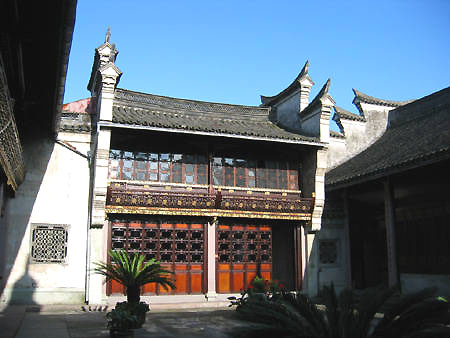Who are my ancestors? Where have they lived? Were there any outstanding figures among them? These questions, commonly asked by Chinese people, may find their answers in Tianyi Pavilion, the oldest folk library in China.
Thanks to a newly opened service in the library, the public are now allowed to use its collection of genealogy archives, He Yuhong, deputy director of the library, told the Today's Morning Post.
According to the deputy director, the move was triggered by the fast growing reserve of genealogy documents in the pavilion, which so far expand to about 550 complete sets of genealogy, covering more than 100 family names.
Tianyi Pavilon has started assembly of genealogy books since the 1970s, during the Cultural Revolution, when a large quantity of such documents were sold or sent to paper mills as waste. The first batch of the collection was 300 kg of books and records picked out of a mess of waste paper.
Over recent years, the collection expanded, partly by donations from the public. "We have received 10 books of genealogy materials in the first half of the year alone," said He Yuhong.
Family trees housed by the library are mainly those of east China's Jiangsu and Zhejiang provinces. This is because the pavilion is located in Ningbo city, Zhejiang province.
People who want to trace their family trees will have to make a phone-booking and bring a letter of introduction, issued by the local government.
"You need a reason to look into the documents," said He Yuhong, "One of them may be the compiling of local annals."
However, all such troubles may soon be saved, as the library is putting the documents online. Once completed, one can search for his family tree with a single click of the mouse.
Tianyi Pavilion is the oldest private library in China. Built between 1561 and 1566, it was the library of Fan Qin, a vice Defense Minister of the Ming Dynasty.
Tianyi Pavilion maintains a collection of about 300,000 ancient books, among which 80,000 are rare copies, mostly woodcut and hand-written copies from the Song and Ming dynasties. They are rich sources of local chronicles and imperial examinations, and are precious materials for the study of history, people, social customs and habits.
Managed under state protection, Tianyi Pavilion is a major historical and cultural site. It is and also one of the major symbols of Ningbo as a historical and cultural city.
A file photo shows Tianyi Pavilion, the oldest folk library in China, located in Ningbo city, Zhejiang province.
(CRI.cn August 1, 2007)


